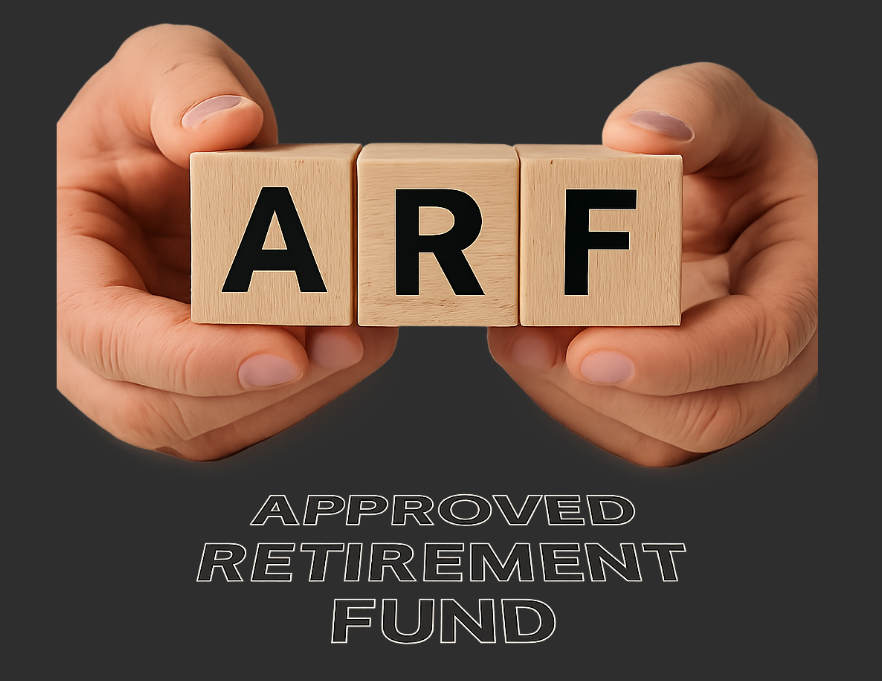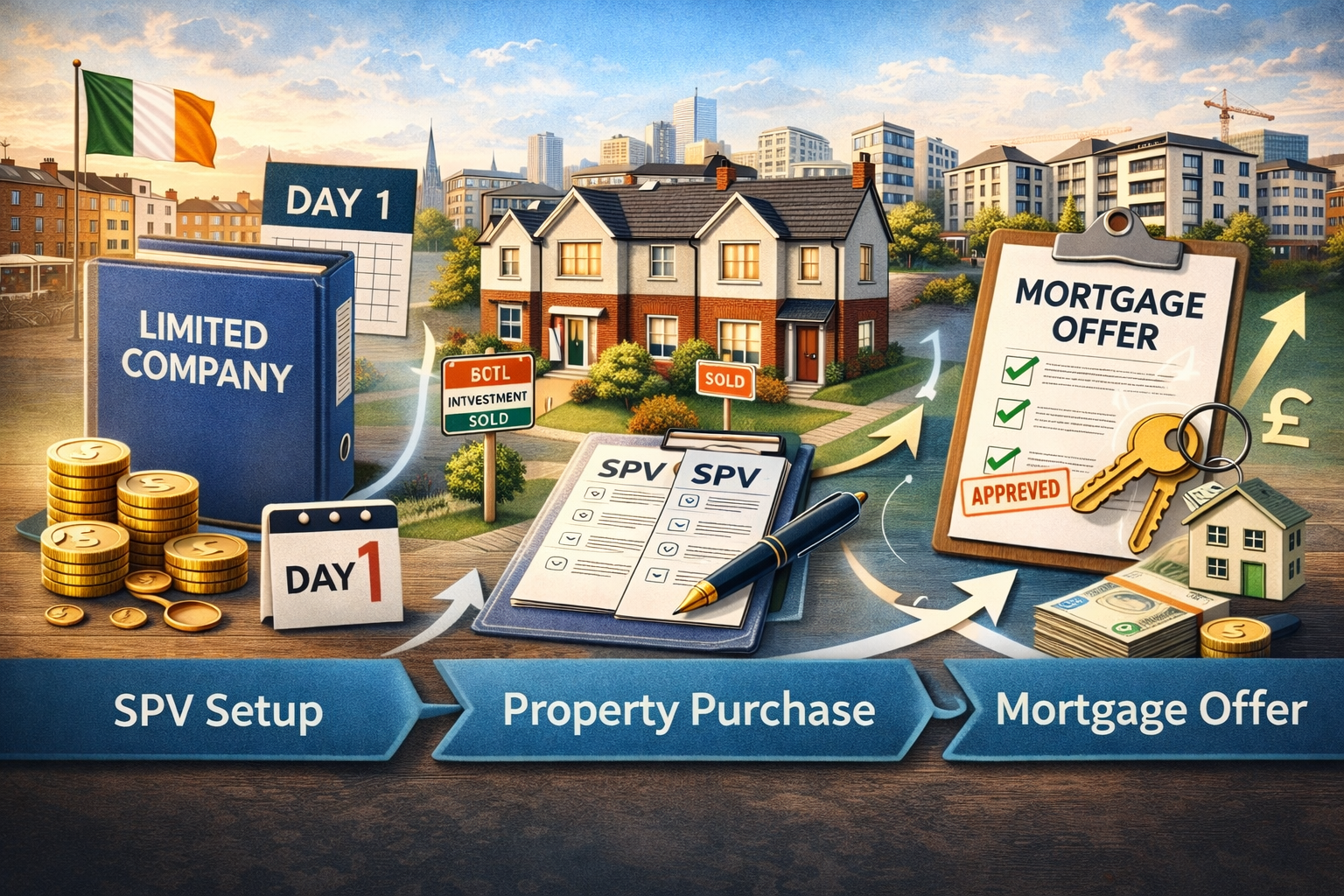Unlock the benefits of ARF pensions – flexibility, investment options, and strategic tax planning for your retirement in Ireland.
Your Ultimate Guide to ARF Pensions: Secure Your Retirement Today!
Are you wondering how to make the most of your pension as you approach retirement?
Understanding the world of ARF Pensions can feel overwhelming, but it’s more straightforward than you might think.
Imagine having the ability to manage your pension funds after retirement in a way that fits your lifestyle and goals.
This is where an Approved Retirement Fund (ARF) comes into play. It offers flexibility, potential for growth, and tailored options.
But what exactly is an ARF pension, and why should it matter to you?
Ready to take control of your financial future? SCHEDULE YOUR FREE CONSULTATION NOW!
You might also like our post on Expert Arf Advice: Securing Your Retirement With The Right Approved Retirement Fund In Ireland.
Let’s break it down and see how you can secure a comfortable retirement with smart investments. KEEP READING!
WHAT IS AN ARF PENSION?
An Approved Retirement Fund (ARF) is a post-retirement financial product that allows you to reinvest your pension funds after retirement, following the withdrawal of the initial tax-free lump sum.
It provides flexibility in managing your pension, enabling you to invest the remaining funds and potentially grow their value throughout your retirement years.
How ARFs Work
Upon accessing your pension fund, the following typically occurs:
Related read: Arf Approved Retirement Funds Cork.
Tax-Free Lump Sum
- You receive a tax-free portion of your pension fund, typically 25% of the total value, capped at €200,000.
Transfer to an ARF
- The remaining 75% of the pension value is transferred into an Approved Retirement Fund (ARF).
Taxation on Withdrawals
- Any future withdrawals from the ARF are taxed as income under PAYE (Pay As You Earn) taxation rules.
Why Consider an ARF?
Investing in an ARF is often attractive due to the flexibility it offers:
- Control over withdrawals – You decide how much to withdraw and when (monthly, annually, or on an ad-hoc basis).
- Tax-efficient income management – With careful planning, you can potentially reduce the amount of tax paid on your pension income.
- Investment flexibility – You choose how to invest your ARF funds to suit your risk tolerance and financial goals.
When is an ARF Required?
An ARF is typically required in the following scenarios:
Take the next step in securing your retirement. Book a consultation with our financial advisors today.
- Retirement from a Defined Contribution (DC) Pension Scheme
- Transferring the taxable portion of an Additional Voluntary Contribution (AVC) fund from a Defined Benefit (DB) pension (e.g., a public sector pension scheme)
- Taking a transfer value from a Defined Benefit (DB) pension scheme
- Accessing an overseas pension entitlement
ARF WITHDRAWAL RULES
Taxation on Withdrawals
- All withdrawals from an ARF are taxed as income and are subject to Income Tax, PRSI, and the Universal Social Charge (USC).
- Income tax is applied at the pension holder’s highest marginal rate (20% or 40%).
- PRSI deductions cease at age 66.
- Any PRSI paid from ARF withdrawals will enhance your contributory state pension entitlement.
What Happens When ARF Fund Value Exceeds €2 Million?
There is a €2 million threshold for large value funds. Once your fund reaches or surpasses this amount it changes the imputed distribution rate.
Curious about ARF pensions? Send us your questions today and our experts will guide you through every step.
- In these high-value fund cases, the entry rate is 6% at the age of 61.
Compulsory Withdrawals – Imputed Distributions
Revenue rules mandate minimum withdrawals from an ARF as follows:
Recommended: Securing Your Retirement With The Right Approved Retirement Fund In Ireland.
- From age 61: Minimum annual withdrawal of 4% of the fund value.
- From age 71: Minimum annual withdrawal increases to 5%.
If the pension owner does not withdraw the required amount, the ARF provider will automatically process the imputed distribution and pay the required tax to Revenue.
TAX CONSIDERATIONS ON ARF WITHDRAWALS
PAYE Taxation
- Withdrawals from an ARF are subject to PAYE taxation.
- Taxes are deducted at source by the ARF provider before payment is made to the pension owner.
Excess Taxation & Rebates
- If a higher rate of income tax is initially deducted, a tax rebate may be claimed once annual income figures are finalised.
- This is especially relevant for ad-hoc withdrawals taken throughout the year.
Optimising ARF Withdrawals to Minimise Tax
To maximise your retirement income while minimising tax liability, it is essential to stay within lower tax brackets where possible.
Withdrawal Frequency Options:
- Monthly
- Annually
- Ad-hoc, as needed
Additional Optional Withdrawals
- Beyond the compulsory imputed distributions, ARF holders may take additional withdrawals at their discretion.
- Always consider tax efficiency when making withdrawals.
Current Tax-Free Income Thresholds (Revenue Rules)
Single Person (assessed individually)
- Up to €18,000 per year tax-free from all income sources.
- Can earn up to €44,000 per year and remain in the lower tax bracket (20%).
Married Couple (joint assessment)
- Up to €36,000 per year tax-free from all income sources.
- The higher-income earner can earn up to €53,000 per year and remain in the lower tax bracket (20%).
HOW LONG WILL AN ARF LAST IN RETIREMENT?
The longevity of an ARF depends on two key factors:
Investment Returns
- If the returns generated from ARF investments exceed withdrawals, the fund may last indefinitely.
Withdrawal Rate
- If withdrawals consistently exceed investment growth, the ARF will eventually deplete (known as “bombing out”).
💡 Example: If a pension owner only withdraws the compulsory 4% per year, they should aim to generate a net investment return of 4% or higher to sustain the fund over time. Choosing the right investment strategy is crucial.
You might also like our post on Overseas Pension Advice Ireland: How To Maximize Your Overseas Pension Benefits While Living In Ireland.
WHAT HAPPENS TO AN ARF ON DEATH?
Upon death, the full value of the ARF is passed on as part of the estate:
- To a surviving spouse – The ARF transfers tax-free, but all future withdrawals are taxed as income.
- To children under 21 – The ARF is subject to inheritance tax (lifetime exemption limit of €400,000 per child applies).
- To children over 21 – A flat 30% tax applies on the ARF value.
Important: ARF funds received by children over 21 do not count towards their €400,000 lifetime Capital Acquisitions Tax (CAT) exemption.
WHO PROVIDES ARFs?
Standard ARF Providers
- Zurich
- Royal London
- Irish Life
- New Ireland Assurance
- Aviva
Self-Administered ARF Providers
- ITC
- Quest
- Cantor Fitzgerald
- Davy
ARF INVESTMENT OPTIONS
ARF holders have a range of investment choices, depending on their risk tolerance and financial goals.
Common investment options include:
- Cash on deposit
- Stocks and shares
- Property
- Commodities
- Government & corporate bonds
Some ARF holders may prefer high-growth investments, while others opt for low-risk, capital-protected funds.
Ready to explore ARF pension options tailored for you? Schedule a free consultation with us now.
Related read: Comparing Tax Efficient Education Savings Plans And Investment Options For Children In Ireland.
A tailored investment approach is essential to align with each individual’s needs and objectives.
Want clarity on how ARF pensions can benefit your retirement? Get in touch now for a personalised response
HOW TO CHOOSE THE RIGHT ARF PROVIDER
Standard ARF Providers
- Zurich
- Royal London
- Irish Life
- New Ireland Assurance
- Aviva
- Irish Life
Self-Administered ARF Providers
- ITC
- Quest
- Cantor Fitzgerald
- Davy
As pension brokers, we help clients compare providers based on:
- Fees & charges
- Investment performance
- credibility & reputation
- Customer service
We provide tailored recommendations to ensure you choose the best ARF provider to meet your retirement needs.
Recommended: How Self Employed Dubliners Can Maximize Pension Tax Relief.
NEED HELP CHOOSING THE RIGHT ARF?
Our expert financial advisors can guide you in making the right ARF investment decisions to secure your financial future.
Frequently Asked Questions
1. What is an ARF Pension?
An ARF Pension (Approved Retirement Fund) is a post-retirement investment vehicle that allows you to manage your pension funds after retirement. It provides flexibility to invest and withdraw funds while potentially growing your savings over time.
2. How does an ARF Pension work?
When you retire, you can transfer a portion of your pension into an ARF. You have control over how these funds are invested and can choose when and how much to withdraw, giving you greater financial autonomy during retirement.
3. What are the benefits of choosing an ARF Pension?
- Tax-Free Growth Potential: Your investments within an ARF grow tax-free until withdrawal.
- Flexibility: You decide on withdrawals and investment strategies based on your needs.
- Inheritance Options: Unused funds can be passed on to beneficiaries.
4. Who should consider an ARF Pension?
Individuals approaching retirement who wish to maintain control over their retirement funds should consider an ARF Pension. It’s suitable for those looking for flexibility in withdrawals and investment choices after leaving full-time employment.
5. How do I choose the best provider for my ARF Pension?
- Research Providers: Look at fees, investment options, and customer reviews.
- Compare Services: Evaluate the range of investment options and support offered.
- Consult Financial Advisors: Seek advice to tailor your ARF Pension to your specific needs.
CONCLUSION
Navigating the world of ARF pensions doesn’t have to be daunting. With a solid understanding of what an ARF is, how it works, and the various considerations involved, you can make informed decisions that benefit your retirement years. From understanding withdrawal rules and tax implications to selecting the right provider and investment options, each step plays a crucial role in shaping your financial future.
Remember, choosing the best ARF provider requires careful research and consideration of your unique needs. Whether you’re looking for flexibility or long-term growth potential, there are options available that can help you achieve your retirement goals.
Taking control of your pension doesn’t need to be overwhelming. By arming yourself with knowledge and seeking guidance from experts like Money Maximising Advisors, you can confidently build a retirement strategy tailored to your life’s vision. Start planning today for a financially secure tomorrow.
Got questions or need personalised guidance? CONTACT US for expert financial advice tailored to your needs.










